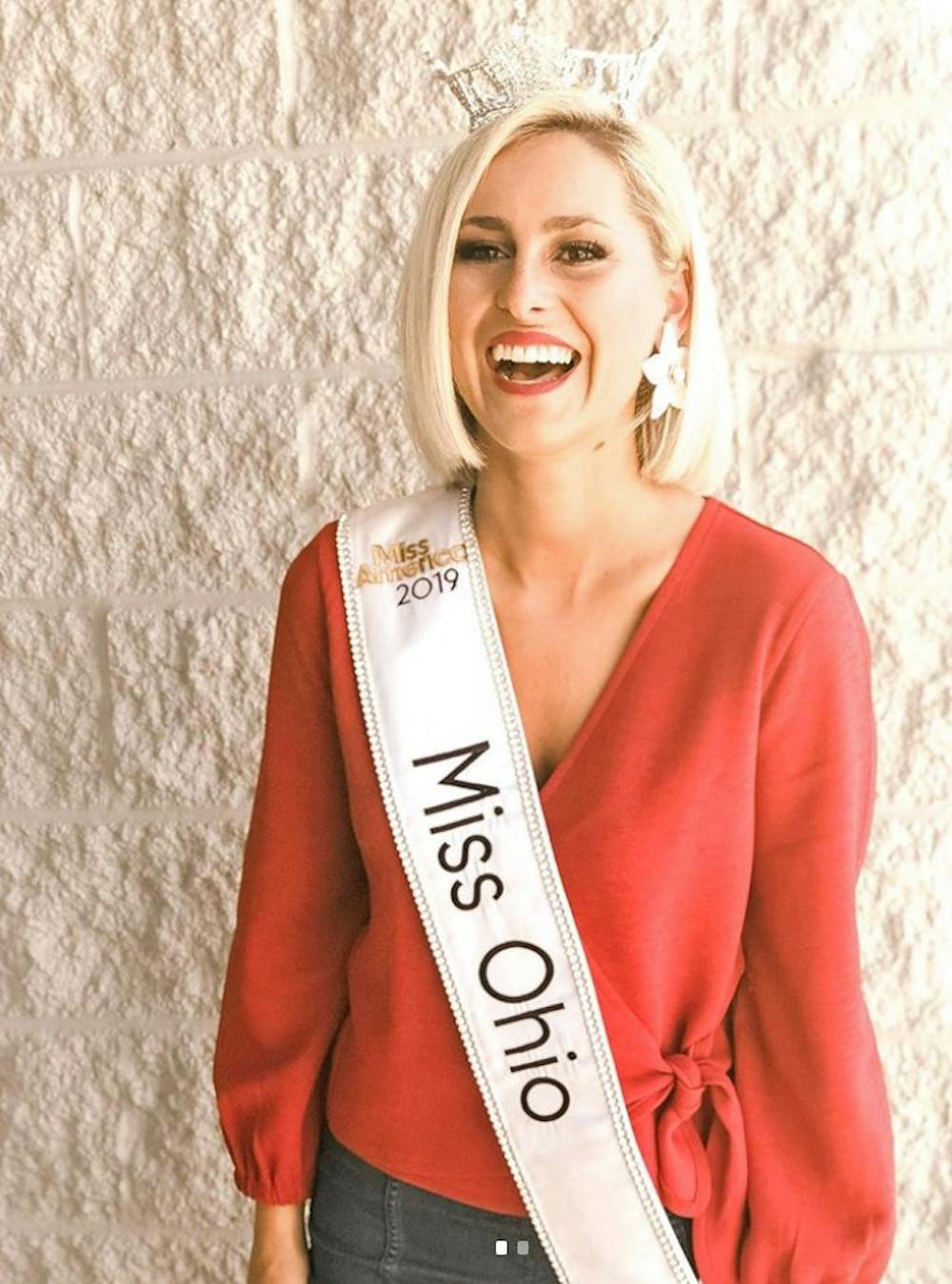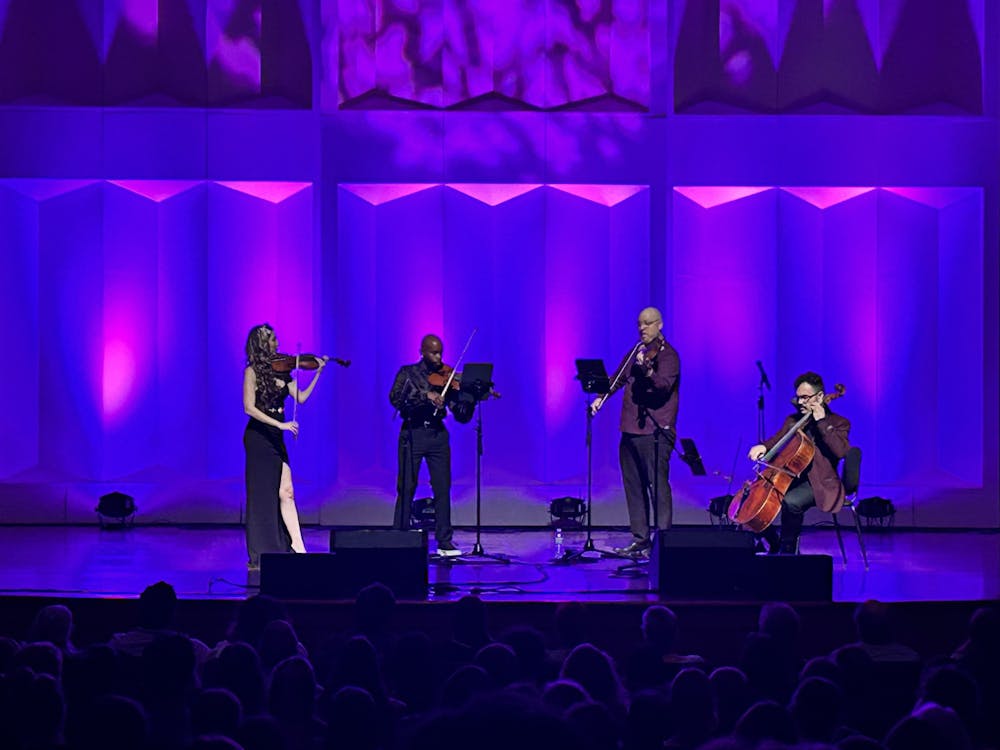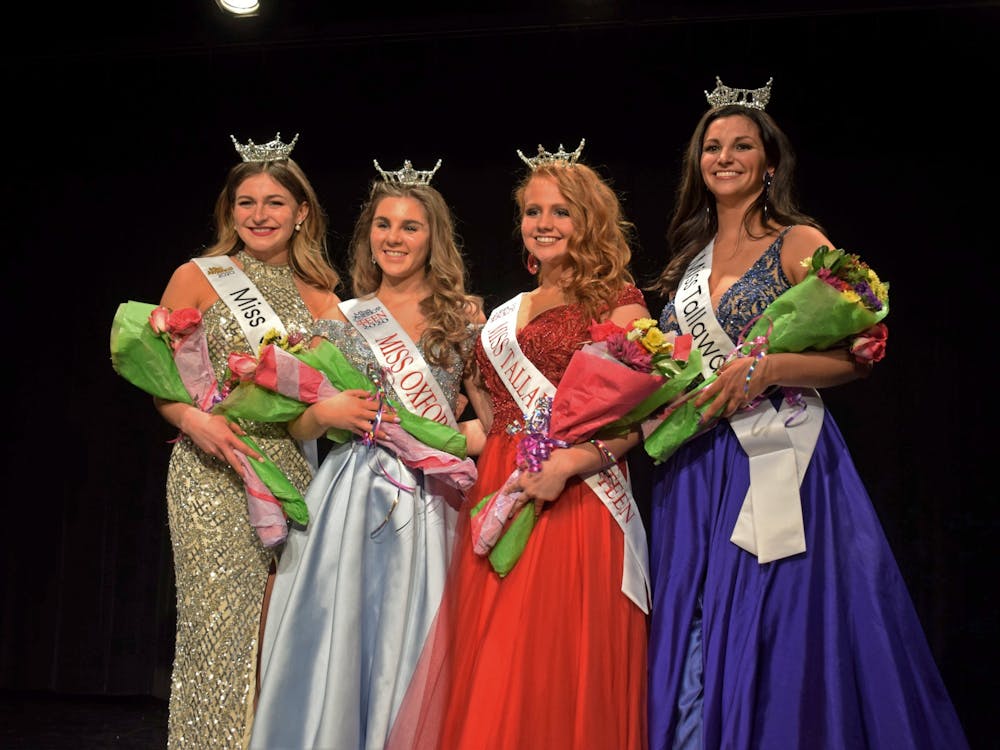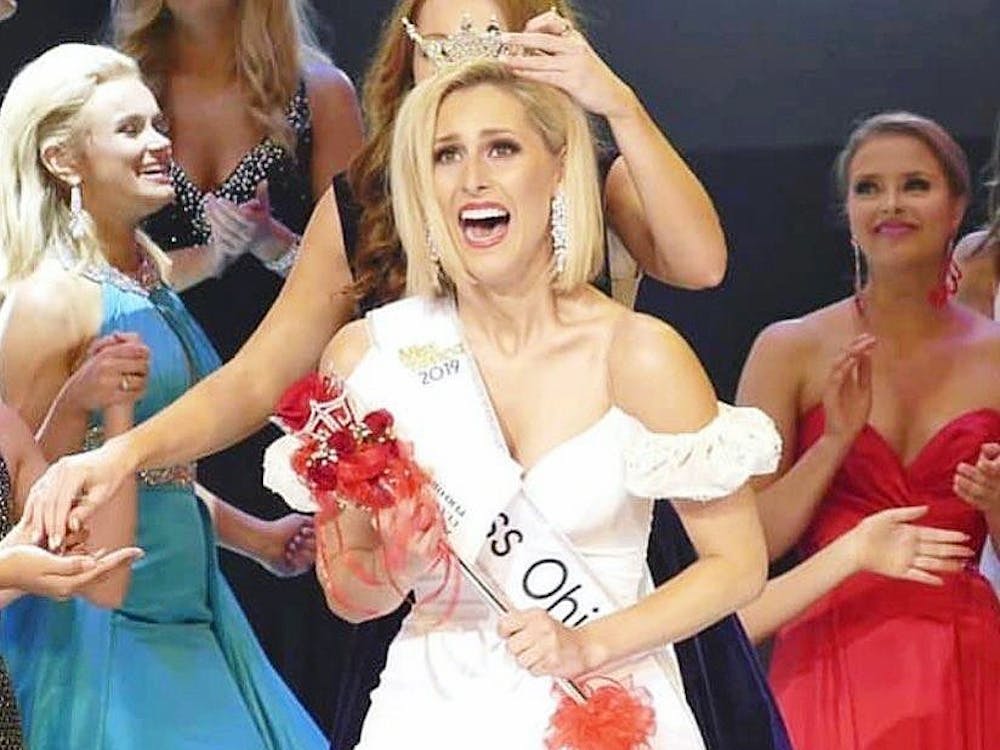Amid the bright lights and dazzling dresses of the Miss America pageant, each contestant showcased a unique talent. Miss Missouri twirled a sparkling baton, Miss Oklahoma strutted her stuff with a jazzy dance number and the pageant’s winner, Camille Schrier from Virginia, blasted colorful foam from giant glass beakers in an extravagant experiment.
Caroline Grace Williams, Miss Ohio and a Miami University alumna and current employee, brought a piece of Miami into the talent portion of her performance.
As she took to the stage Thursday, Dec. 19, Williams performed a stirring piece from the opera “Gianni Schicchi” by Giacomo Puccini. The song, “O Mio Babbino Caro (Oh My Dear Papa),” is a light soprano number that sent Williams’ voice soaring into the upper octaves as she took her turn in the spotlight.
“It was surreal,” Williams said. “But it was an honor to represent Ohio and Miami in every phase of competition.”
But the music she sang to wasn’t any old recording — it came straight from the instruments of the Miami University Symphony Orchestra (MUSO). Instead of finding another arrangement of the piece, Williams decided to call upon Miami’s musicians to back her up as she sang in front of a national audience.
Ricardo Averbach, MUSO director and conductor for their rendition of “O Mio Babbino Caro,” said the experience was a thrilling one and right up MUSO’s alley.
“It was a rather unique and exciting opportunity,” Averbach said. “We’re always looking for unique performance opportunities for our orchestra. We want to be doing things that no other program in the country is doing.”
Averbach said MUSO worked with Williams to modify the song for her televised performance. They had to shave it down to 90 seconds, despite the piece’s typical two-to-three-minute runtime, due to the nature of her time slot.
Williams said taking even a second or two off the song was a challenge.
“I didn't want to cut any part of the song because I felt it was important to keep the full story arc from beginning to end,” Williams said. “Luckily Professor Averbach was able to accommodate a 90 second version that fit both our needs.”
According to Averbach, not only did the modified version work well for Miss Williams’ televised time slot, the shortened rendition actually made some sense in the context of the piece.
“It was actually quite fitting stylistically,” Averbach said. “It makes quite a bit of sense for the character Miss Williams was playing to sing in a faster, more emotive style.”
Enjoy what you're reading?
Signup for our newsletter
The national exposure and opportunity to work with Miss Ohio gave some MUSO members an additional jolt of excitement when preparing the piece.
MUSO President Taylor Wallace said that while they didn’t do anything too different than normal when practicing the song, the unique energy was palpable.
“It was pretty much business as usual,” Wallace said. “But we were all so excited about this performance, we were able to put that excitement into our music and have it come through in the music.”
In addition to the energy and excitement that came from the group’s prominent performance, Wallace said she appreciates how Williams honored her ties to Miami onstage.
“Something like this is so cool because it showcases the link between Miss Williams and Miami,” Wallace said. “It shines a light not only on the place she got her degree, but on the place she lives and works at. She’s a RedHawk through and through.”
Although Williams didn’t walk away as the winner at the end of the night, she believed she delivered a performance to be proud of.
“I think this collaboration shows the power of community,” she said. “People are always willing to share their talents and lend a helping hand — we just have to ask. I could not have gotten this far without the help of my Miami community.”
Averbach agreed.
“No matter who won the contest itself, we’re very thankful to have been able to work with Miss Williams and to play our music for the world,” he said. “And as always, we’re already looking forward to our next performance.”




